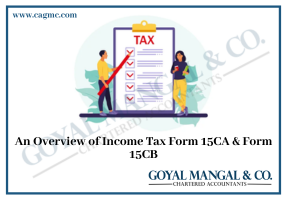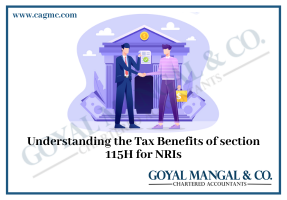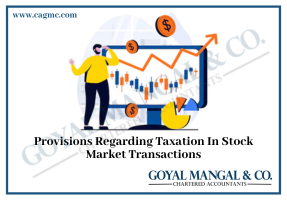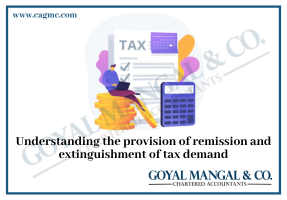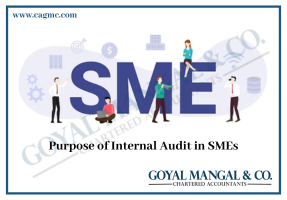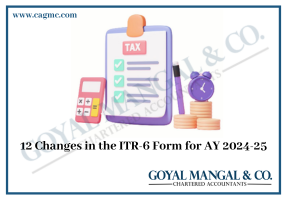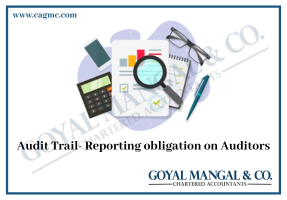
The Finance Minister, Nirmala Sitharaman, unveiled the Union Budget 2023 on 1st February 2023. Generally, the budget before general elections is always a much-anticipated one with everyone hoping for big, bold moves. Various tax relief measures were introduced under the new tax regime. It looks like the government wants taxpayers to switch to the new tax regime and phase out the old tax regime. Various measures were included to boost consumption in the economy, ease the compliance burden, benefit MSMEs and the middle class, and simplify and streamline the tax system.
This article briefly describes the Budget 2023 – Income Tax Amendments, Proposed changes in Tax Rates, & some other Proposed Amendments.
Proposed changes in Tax Rates
- In the alternate tax regime under Section 115BAC, a revision to the basic exemption limit and the number of slabs has been proposed. The revised basic exemption limit shall be INR 3,00,000 and for every additional INR 3,00,000 of income, the next slab rate will be applicable. The highest slab rate of 30% shall continue to apply to income above INR 15,00,000.
- The threshold limit for total income eligible for rebate under Section 87A has been proposed to be increased from INR 5,00,000 to INR 7,00,000 for assessee opting for the new tax regime.
- Under the new tax regime, the highest surcharge rate of 37% on income above INR 5,00,00,000 has been proposed to be reduced to 25%.
- The alternate tax regime of Section 115BAC is proposed to be applicable to Association of Persons (AOP)[(other than a co-operative society], Body of Individuals (BOI), and Artificial Juridical Persons (AJP).
- Standard deduction from salary income and deduction from family pension is proposed to be extended to employees who opt for New Tax Regime.
- The new tax regime under Section 115BAC is proposed to serve as the default regime.
- A new section 115BAE is proposed to be inserted, which provides for reduced rate of tax of 15% (plus surcharge of 10% and cess) for Manufacturing co-operative societies established on or after April 1st, 2023, and commencing production on or before March 31st, 2024 [provided that specified incentives or deductions are not availed]. Further, income not derived or incidental to manufacturing or production of an article or thing shall be taxed at 22%.
- Section 115BBJ is proposed to be inserted which provides the tax rate of 30% on any winning from online gaming.
- Provisions of Alternate Minimum Tax (AMT) and credit thereof shall not apply to cooperative societies opting for an alternate tax regime under Section 115BAE.
Proposed amendments with reference to Deductions and Exemptions
- Receipts arising from life insurance policies issued on or after April 1st, 2023 shall be considered as income from other sources if the premium paid exceeds Rs. 5,00,000 in a given year. The exemption for receipts in the event of the insured person’s death shall remain unchanged.
- To avail a deduction under Section 10AA, the assessee must submit a return of income on or before the due date specified under Section 139(1).
- Deduction under Section 10AA shall only be allowed if the proceeds from the sale of goods or provision of services are received within 6 months from the end of the previous year or within such further period as the competent authority may allow in this behalf.
- Income distributed from offshore derivative instruments (ODI) entered into with an offshore banking unit of an IFSC shall be exempt from tax under Section 10(4E).
- The exemption under Section 10(22B) for news agencies is proposed to be withdrawn.
- Tax exemption under Section 10(46A) is proposed to be extended to ‘non-corporate entities (Such as bodies, authorities, boards, trusts, or commissions), established by a Central or State Act for the purpose of providing housing, planning urban development, and regulating activities for the benefit of the public.
Proposed amendments with Reference to Capital Gains
- The transformation of physical gold into Electronic Gold Receipts and vice versa by a Vault Manager registered with the Securities and Exchange Board of India (SEBI) shall not be considered as a transfer for purposes of capital gains taxation.
- The cost of any intangible assets and rights shall be considered as nil for which no consideration has been paid for acquisition.
- The gains derived from the transfer, redemption, or maturity of Market Linked Debentures shall be taxed at applicable rate as short-term capital gains under Section 50AA.
- An individual or HUF can claim a maximum exemption of Rs. 10 crores under Sections 54 and 54F.
- No tax shall be imposed on the transfer of capital assets in connection with the relocation of an offshore fund to an International Financial Services Centre (IFSC). The deadline for this relocation has been extended to 31-03-2025.
- To align the provisions of Joint Development Agreement with the TDS provisions under section 194-IC, amendment is proposed in section 45 to provide that the full value of consideration shall be taken as the stamp duty value of the property received as increased by any consideration received in cash or by a cheque or draft or by any other mode.
Proposed amendments with reference to Charitable & Religious Trusts
- The utilization of corpus, loans or borrowings by a charitable or religious trust prior to 01-04- 2021 will not be considered an application for charitable or religious purposes if the amount is subsequently deposited back into the corpus or the loan is repaid.
- The repayment of a loan or investment into the corpus will only be considered an application for charitable or religious purposes if it occurs within 5 years of the initial utilization.
- The donations made by one trust or institution to another trust or institution shall be deemed to be an application of up to 85% of the donated amount.
- Trusts and institutions that have initiated their activities must apply directly for regular registration, rather than provisional registration.
- The submission of an application for registration containing false, inaccurate, or incomplete information is considered a designated violation and may result in the revocation of the registration of trusts or institutions by the Principal Commissioner of Income Tax/Commissioner of Income Tax.
- The provisions for tax on accreted income as specified in Section 115TD have been extended to trusts or institutions, if they fail to apply for re-registration.
- In order to claim the accumulation of income, trusts or institutions must file Form 9A and Form 10 at least two months prior to the deadline for filing th Time provided for furnishing a return of income for claiming exemption by trusts or institutions under Section 10(23C) or Section 11 or Section 12 shall not include the time provided for furnishing an updated return. In other words, the exemption shall be allowed if the return of income is furnished within the time allowed under Section 139(1) or Section 139(4) and not Section 139(8A).
- The second, third and fourth proviso to Section 12A (2) allows trusts and institutions to claim an exemption under sections 11 and 12 for the previous year in which application for registration is made even though registration is granted in the subsequent year.
- However, under the new registration rules proposed by the Finance Bill 2023, provisional registration must be applied before the commencement of the activities. So, these rollback provisions are removed returns of income
Proposed amendments with reference to Income from Business or Profession
- Under Section 43B, deductions for sums payable to Micro, Small, and Medium Enterprises (MSMEs) proposed to be allowed on payment basis.
- It is proposed that for sugar co-operatives societies, for years prior to A.Y. 2016-17, if any deduction claimed for expenditure made on purchase of sugar has been disallowed, an application may be made to the Assessing Officer, who shall recompute the income of the relevant previous year after allowing such deduction up to the price fixed or approved by the Government for such previous year.
- Non-Banking Financial Companies proposed to be notified for the purposes of Sections 43B and 43D.
Proposed amendments with reference to TDS & TCS
- The threshold limit for TDS under Section 194N has been proposed to be raised from INR 1 crore to INR 3 crore for recipients who are cooperative societies.
- The rate of TCS for foreign remittances, for other purposes under LRS and purchase of overseas tour program, is proposed to increase from 5 % to 20 %
- TDS on winning from online gaming is proposed without any threshold benefit. The tax will be deducted either upon withdrawal or at the end of financial year.
- The exemption from TDS available on interest payments on listed debenture is proposed to be removed.
- if the recipient of EPF withdrawal does not provide his PAN, TDS on the withdrawal Section 197 is proposed to be amended to include section 194LBA in its scope. Thus, unit holders receiving income from business trusts can obtain lower or nil deduction certificates
- Sections 206AB and 206CCA have been amended to exclude certain persons from the scope who are not required to file a return of income and are notified by the government.
- For certain income paid to non-residents or foreign companies, TDS will be deducted at a rate of 20% or the rate specified in a tax treaty, whichever is lower. This relief will be available if the payee provides a tax residency certificate will be 20%, instead of the maximum marginal rate.
- Section 155 is amended to solve a TDS mismatch problem. When a taxpayer reports income using the accrual method, it may be taxed before the TDS is deducted. It causes a TDS mismatch and prevents the taxpayer from claiming TDS credit. The amendment in section 155 allows taxpayers to apply to the assessing Officer within two years of the financial year in which the tax was withheld.
Proposed amendments with reference to Penalties and prosecutions
- A penalty of Rs. 5,000 will be imposed on financial establishments for submitting inaccurate SFTs as a result of incorrect information provided by account holders. The financial institution has the right to recover the fine from the account holder.
- It is proposed to amend section 271C and section 276B to provide for penalty and prosecution where deductor fails to ensure that tax has been paid under Section 194R, Section 194S and Section 194BA.
- It is proposed to decriminalize certain acts of omission of liquidators under section 276A of the Act with effect from 1st April, 2023.
Other Proposed Amendments
- Central Govt. will prescribe a uniform method for the valuation of perquisites arising from rent free or concessional accommodation provided by an employer to an employee.
- Distributions by business trusts to unit holders that are classified as debt repayment proposed the provisions for thin capitalization in Section 94B will not apply notified NBFCs.
- The interest calculation for updated tax returns will be based on the difference between the assessed tax and the advance tax claimed in the earlier returns.
- Double deductions by claiming interest on housing loan under Section 24 and including it as part of the cost of acquisition shall not be allowed.
- The eligibility period for tax deductions for start-ups under Section 80-IAC is proposed to be increased by one year. The start-ups incorporated before 01-04-2024 shall be eligible for deduction to be taxed in the hands of unit holders.
Conclusion
Finance Minister Nirmala Sitharaman presented the Union Budget 2023-2024, with a number of important announcements for Education infrastructure, healthcare, medical research, pharmaceuticals and more. A growth-oriented union budget was presented which will safeguard the Indian economy by mitigating the impact of global recessionary pressures. The Budget proved many expectations right by making announcements which addresses the demand of Indian economy. The Budget expects the Indian Economy will grow by 6 to 6.8% growth rate in the next fiscal year.

